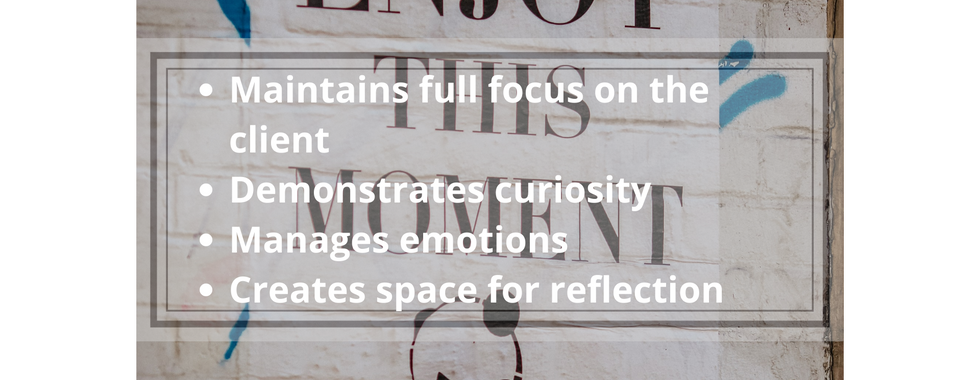Updated ICF Core Competence model includes new elements and themes that emerged from the large scaled research and have been integrated into this model. These include a paramount emphasis on ethical behavior and confidentiality, the importance of a coaching mindset and ongoing reflective practice, the critical distinctions between various levels of coaching agreements, the criticality of partnership between coach and client, and the importance of cultural, systemic and contextual awareness. These foundational components, combined with emerging themes, reflect the key elements of current coaching practice.
In Progress - Will be updated
Updated coaching core competencies
Updated Coaching Core Competencies
More Streamlined
More Consistent Language
Enhanced Some of the Concepts
Improved Cohesion
More Succinct (1,537 Words ➔ 1,109 Words)


Overview: Updated Core Competencies
VIDEO Series: Updated ICF Core Competencies
Detail Information of ICF Competence vs. ICF PCC Marker
A Powerful ICF Core Competency: Embodies a Coaching Mindset
You can find an extension of this competence written by Mukul Dhawan on 18-May, 2021 on ICF Blog. A Powerful ICF Core Competency: Embodies a Coaching Mindset
An excerpt from the blog that interested me describes the extension of this competence in areas that give me a better understanding of the competence:
ICF has outlined the definition and components of this new competency. To look at it another way, Mukul Dhawan grouped its description into three categories: self-awareness, self-development and self-regulation.
1. Self-awareness
As coaches, be aware of your distinct role. You partner with clients to facilitate their growth. Be playful and explore nuances so you can adapt your coaching style to enable client autonomy.
While it is difficult to quantify impact of culture and context on coaching, be aware of how your own background may have influenced who you are as an individual. Assess with which client’s culture and context may come up, what can lead to an internal debate and assess if you are comfortable with it.
Allow your self-awareness and intuition to play a role in the coaching process to benefit clients. Think about how you recognize and interpret your own intuition and if/how you decide to offer it to the client.
2. Self-Development
Identify opportunities to develop as a coach so that you are fit for purpose and fit for future. To support this, be aware of your own learning style and make learning ongoing.
Create dedicated time to reflect on how the coaching session went for you, how it went for the client and how it went from a competency point of view. Supervision can prove especially useful to develop a reflective practice – among other resources ICF has recently launched is a new Community of Practice – Coaching Supervision.
Honor coaching ethics by directing clients to other professional services when required. Be equally aware of your own support system as a coach and know your go-to professionals to seek help when needed.
3. Self-regulation
Explore areas that can be emotional for you and be aware of how you manage and regulate those emotions. How do you manage emotions when necessary and still be authentic in the coaching space?
Prepare for sessions, mentally and emotionally. Be aware of the rhythm that works for you to be in a state of mental calm before the session begins.
In summary, the “Embodies a Coaching Mindset” competency is an invitation for coaches to be truly open to ongoing learning and development, to stay curious and develop a reflective practice and to move with the client while being flexible about the influence of their own emotions, culture and intuition.
“Being” the coach shows up in “doing” the coaching. Make them both integral parts of your practice to deliver success for you and growth for clients!
Thanks for that, I fully agree with this, projecoach.
Reflection Sub-Competence
One presentation on Covnerge21 dealt more deeply with Reflection Competence, but apparently still referred to the old competence model. In the new competition model, reflection can be assigned to the area of active listening. In Converge21: "ICF Core Competencies and Reflection Competence” it was mentioned that: Intense thinking is not reflection and that it is important to balance between too much reflection and too little reflection. For me, the presentation had several valuable moments, but for this part of the blog I will only mention the mentioned difference between analysis and reflection, which was compared.
Analysis | Reflection |
Active thinking process | Passive process of feeling |
Numbers, facts, events | Impressions, feelings, moods |
Deduce, draw conclusions | Perceive, approximate, capture |
Intellectual and factual access to the world | Intuitive, feeling-related access to the world |
Measurable and visible aspects of the world | Intangible and invisible aspects |
Process of analysis: fast and extensive | Process of reflection: slowed down and pervasive |
Bird’s eye view | Deep sea diving |
Source Converge21: ICF Core Competencies and Reflection Competence by Crhistine Kranz
As mentioned in abstract of presentation by Mrs. Kranz, The ICF Core Competencies are more than a guideline, they show steps of analysis and reflection that enable a brilliant coaching process. In western socialization, we learn to trust analysis and devalue reflective approaches. This makes it even more difficult to achieve meaningful self-reflection and insights with clients that can bring real and transforming changes in behavior patterns.
















Comments